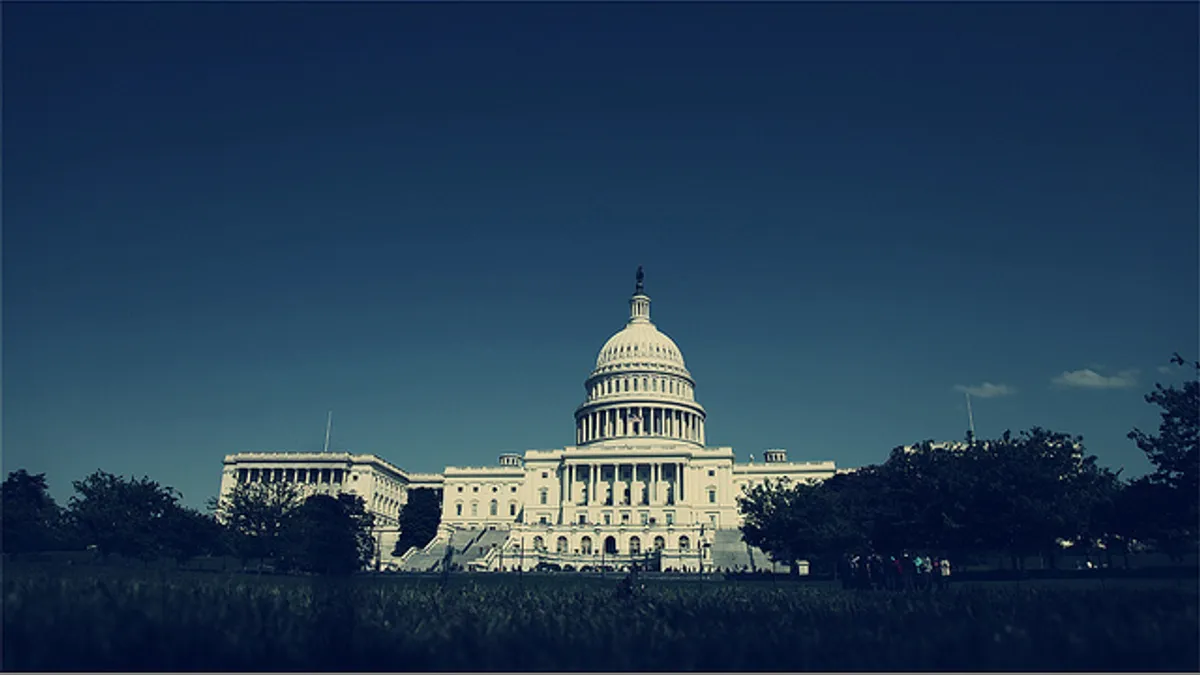As Congress reconvenes today after a five-week summer break, members will be considering several pieces of legislation of interest to the construction industry.
Jimmy Christianson, vice president of government relations at Associated General Contractors of America, said he is hopeful the next few months on Capitol Hill will be productive.
“The main push right now by legislators is to try and get everything done before we fully get into the swing of presidential politics early next year,” he said.
Top on the agenda will be funding the federal government, Christianson said, and debates over hot button issues like border security could slow passage of a continuing budget resolution, which would impact the construction industry because “there’s a lot of construction funding that’s essentially not controversial but that’s held up in these discussions,” he said.
Despite political battles, he expects the continuing resolution, which keeps the government open, to be passed in coming weeks before the next congressional break. If so, it will most likely run until late November or early December.
Christianson also noted that many Hill watchers expect Congress to reappropriate funds that were deferred from military construction projects to fund the border wall expansion. If that happens, he said, the bill would likely include a provision barring the redirection of any of the new money.
“There is a good possibility they would make those programs whole again but probably not as a blank check,” he said. “I imagine there would be some sort of requirement that those funds can’t be used for other purposes.”
Transportation Infrastructure Act
One of the most anticipated pieces of legislation for the industry is the highway reauthorization bill, America’s Transportation Infrastructure Act of 2019, which was advanced by the Senate Environment and Public Works Committee in July.
The $287 billion bill, which would fund the repair and maintenance of roads and bridges over five years, would increase spending by 27% over the current authorization and has the support of President Donald Trump.
“There’s a lot of thought to move that along quickly and hope that other Senate committees of jurisdiction — Banking, Commerce and most importantly, Finance — begin work on that so the Senate can pass it before the end of the year,” Christianson said.
With the Senate action hopefully working to “push the House forward” on the issue, the AGC official said the reauthorization bill could become law by late December or early January. The bill will have a huge impact on the construction industry, as “the vast majority of the money goes to transportation construction projects,” he said.
“In general, most issues don’t have an easy path forward legislatively in our current political climate but the reality over the years is that infrastructure is an area of bipartisanship,” he said.
Water Resources Development Act
Also due for reauthorization in 2020 is the Water Resources Development Act (WRDA) that is on a two-year reauthorization schedule, unlike the five-year schedule of transportation, according to the National Law Review.
One of the most important elements of this legislation is that it helps free up disaster funding and construction projects on water-related infrastructure like dams and levees, some damaged as far back as hurricanes Harvey and Maria in 2017.
“The number one issue we are seeing right now with this act is how we can get disaster funding executed and on the street,” Christianson said.
Christianson is hopeful that with the presidential election looming in 2020, legislators will make a concerted effort to approve critical bills before then, especially those that have internal deadlines or funding cutoffs like the highway bill. If it’s not approved by July 2020, states will lose gas tax revenues.
“So for many of these pieces of legislation, there’s real cliffs and if there’s one thing that Congress is good at, it is waiting until there is a crisis to act,” he said. “Whether or not something gets done this year or next, there's some real deadlines out there that will make Congress act on a lot of these issues.”














